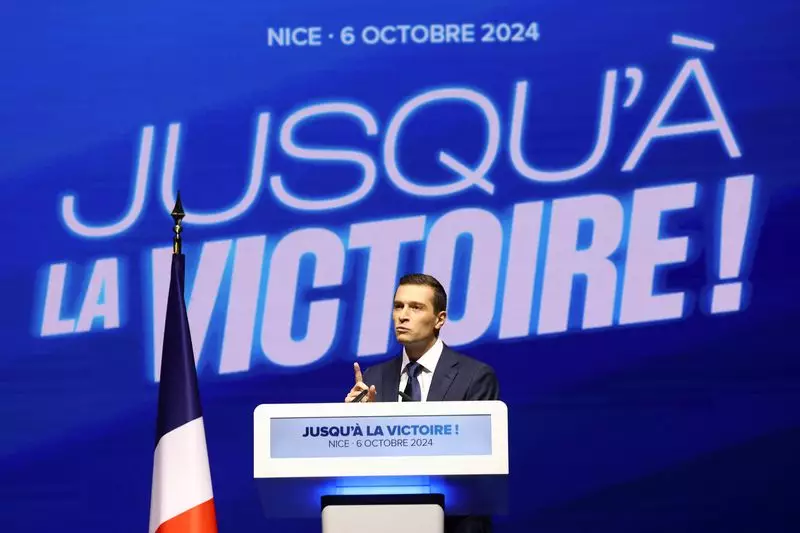Amid escalating tensions within the French government, the far-right National Rally (RN) party has positioned itself to potentially investigate a no-confidence motion against Prime Minister Michel Barnier. RN’s president, Jordan Bardella, has issued a stark warning, indicating that without a sudden and significant shift in policy, the party will take action against the existing government. The backdrop of these tensions revolves around contentious budget discussions and the government’s proposed fiscal strategies, highlighting a deep schism that could disrupt France’s political stability.
At the heart of this political showdown lies the RN’s ultimatums regarding government spending and fiscal priorities. Marine Le Pen, a prominent RN lawmaker, has urged Barnier to consider their demands regarding pension adjustments. The RN insists that pensions should be increased in line with inflation, rejecting the Prime Minister’s proposal to limit increases to less than the inflation rate in a bid to save funds. This not only showcases the RN’s strategy of appealing to citizens’ economic concerns but also illustrates the delicate balance Barnier must maintain in navigating his government’s budgetary proposals.
Bardella’s remarks highlighted a continual dissatisfaction with the government’s decisions, including the abandonment of a planned electricity tax increase and a proposal to hike taxes on gas. These elements reflect a crucial political chess game where every move is significant, and missteps could lead to dire consequences for the current administration.
Should Barnier fail to respond satisfactorily to RN’s demands, the brewing no-confidence motion could lead to an unprecedented political upheaval. The potential collapse of the government would trigger instability in a country already grappling with economic challenges, raising serious questions about investment and growth. Government spokesperson Maud Bregeon expressed concerns over the implications of this crisis, warning that such uncertainty could deter potential investors, further complicating France’s financial landscape.
Experts, including Pierre Moscovici from France’s public audit office, have labeled the current financial climate as perilous. The specter of a budgetary impasse in parliament looms large, threatening to isolate France from potential economic recovery and investment opportunities. Moscovici’s recent statements underline the urgency of addressing the fiscal situation before it spirals into more significant challenges.
In light of these developments, the government has maintained an open stance regarding dialogue and negotiations. Their public commitment may not only serve as an attempt to defuse tensions but also as a strategy to reassure citizens that their economic future remains a priority. As the clock ticks down towards Barnier’s deadline, the necessity for constructive discourse becomes more pressing than ever. The outcome of this political crisis will undoubtedly set the tone for France’s economic and social trajectory in the forthcoming months. Nevertheless, the situation is precarious, underscoring the complexity and interdependence of politics and economics in France today.

